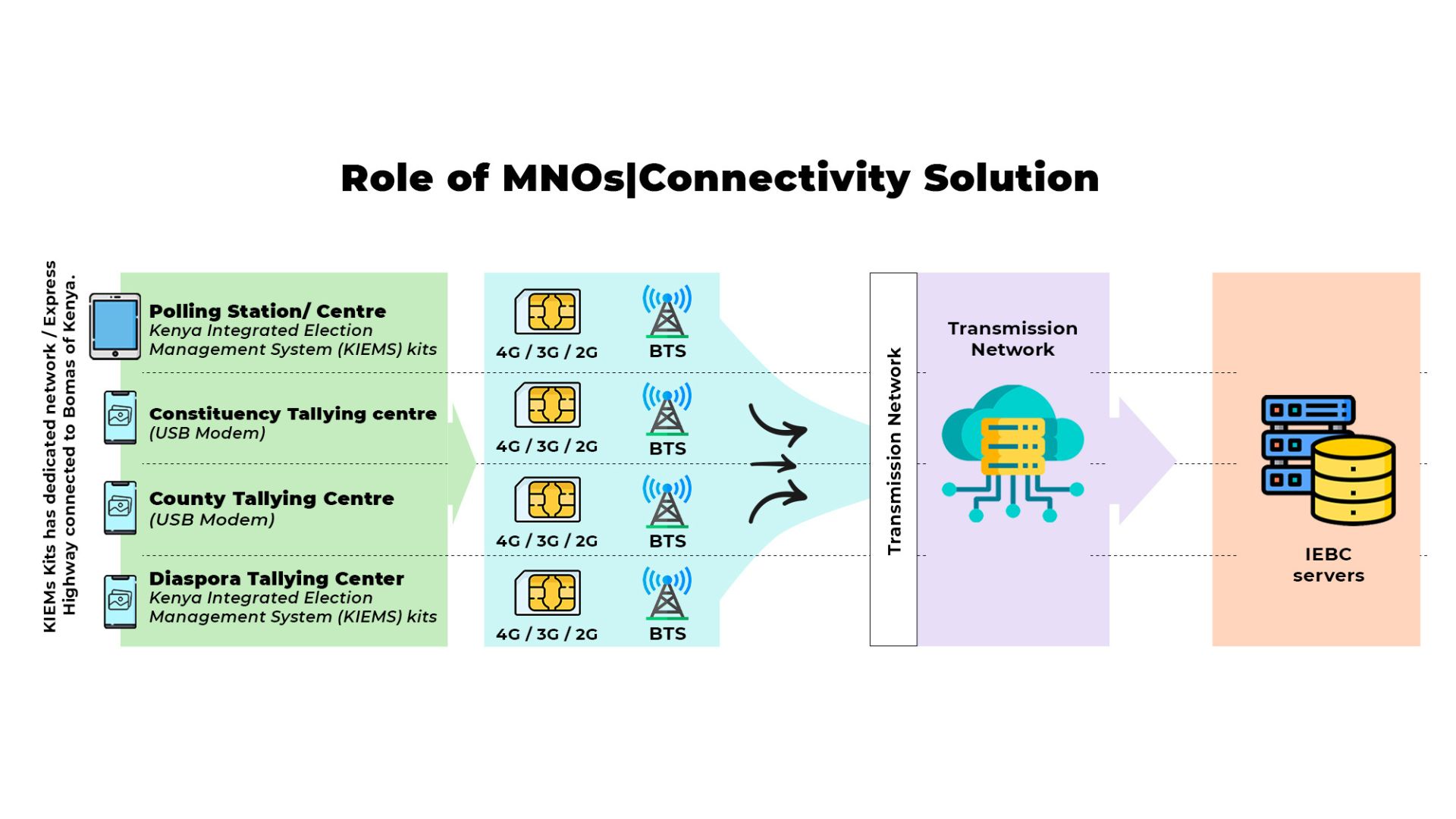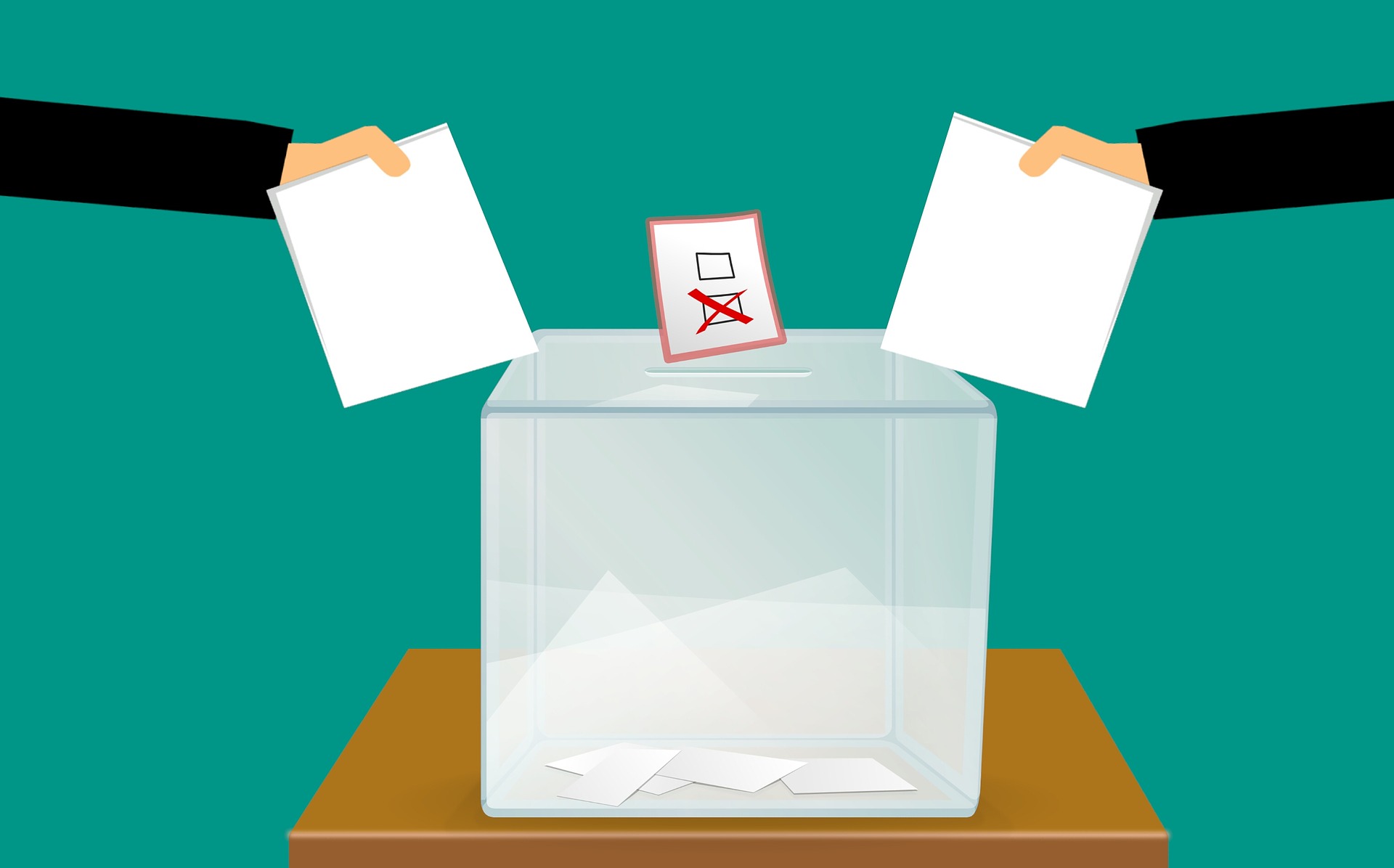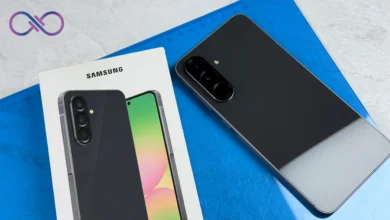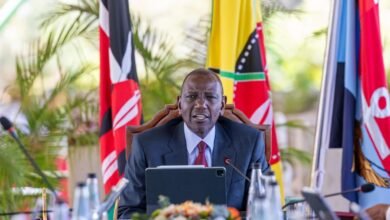The Role of Mobile Networks Operators in the 2022 Elections
As stipulated in the Constitution, every 5 years on the second Tuesday of August, there needs to be an election to determine the next government. So, on 9th August, which is three days from today, Kenyans will be going to the polls to decide on up to 6 positions of leaderships. These include both County government and National government leadership. If you don’t know who’s running for what position in your area, this tool helps you check out the candidates, to help you make up your mind on who to vote for.
A general election is a massive exercise. In one day, millions of people will walk to over 27,000 polling centres, get up to 6 ballot papers and cast their vote. Those votes will then be counted, and the results transmitted to the respective Constituency Tallying Centres and later on the National Tallying Centre. And since, it’s a requirement by law – Election Act, 2011 – the transmission of results must be electronically via a Results Transmission System (RTS).
In this article, we are going to see some interesting facts on what role Mobile Network Operators (MNOs) in Kenya play during this exercise.

Transparency:
Elections in Kenya are conducted by the Independent Electoral and Boundaries Commission (IEBC). It’s this commission that contracts Mobile Network Operators for the Results Transmission System (RTS).
All the different Mobile Network Operators are under obligation to deliver services as may be requested by the commission, in accordance with the Elections Act. It’s in this regard that the The Kenya Integrated Election Management System (KIEMS) kit includes two SIM Cards – from different Mobile Network Operators.
In April, IEBC floated a tender asking the operators to provide:
- 3G/4G SIM cards with data bundles, including roaming SIM cards for those voting from the diaspora.
- 3G/4G internet modems with data bundles
- 2 fibre links to connect IEBC’s primary and secondary data centres
- Internet connectivity at the National Tallying Centre
- Satellite network connectivity.
Security:
According to the Elections Act, the Mobile Network Operators must ensure the security, traceability and availability of their network during the election period.
For any given KIEMS kit, with the two SIM cards from different operators included, there’s the assurance that connectivity will be guaranteed.
The operators are only providing the connection – a secure transmission to IEBC. They cannot see what information is being transited. There has been a simulation exercise with IEBC in this regard.
Here’s what’s also interesting with the SIM cards and the KIEMS kit:
- The Communication Authority of Kenya has set aside a unique numbering code, that’s for election data transmission only. These SIM cards only transmit data, and cannot be used elsewhere. The SIM cards will also be switched off, to be used again only in future elections.
- A modem kit is also inserted in the KIEMS system. Each kit has a modem supporting at least two operators. This is a redundancy measure to ensure transmission doesn’t fail.
- The KIEMS kits also enjoy a dedicated network (express highway) to Bomas of Kenya. This ensures no congestion as could happen with normal network services especially during such big exercises.
Coverage:
According to the Communication Authority, there’s over 96% 3G/4G population coverage across the country. Meaning for most of the country, transmission of data is assured.
For the parts that don’t have strong network coverage, IEBC has deployed satellite network technology to transit the election results. This was already established as of April.
So redundancies have been put in place to ensure that in all areas of the country, coverage and transmission is assured.
Also, why two SIM cards in the Kits? This is because depending on the location, a certain providers network might be stronger than another’s. So for example if Safaricom and Airtel are stronger in your region, there will be a Safaricom and Airtel SIM in the kit. If it’s Telkom and Airtel that’s stronger in another region, those will be the SIM cards in the kits.
That’s it for Mobile Network Operators:
Once transmission has been done, as we’ve seen above, according to the Communications Authority, the SIM cards will be switched off, only for use in future elections.
It’s important to remember that operators are only used as a connectivity solution for IEBC. They don’t interact with or access the data. And their role ends once the data has been transmitted.








very interesting information here